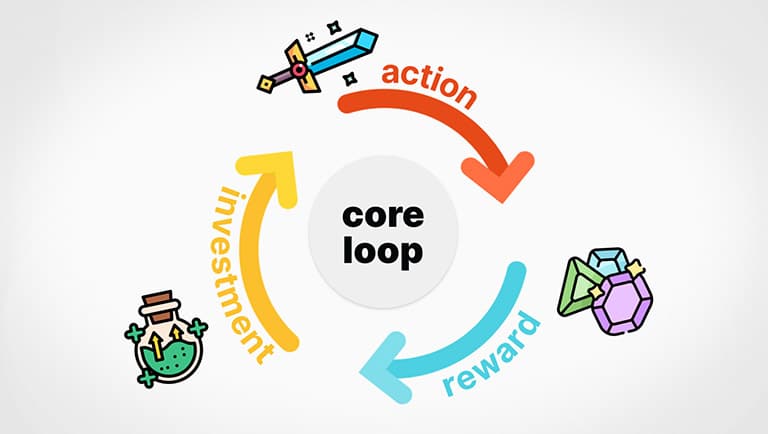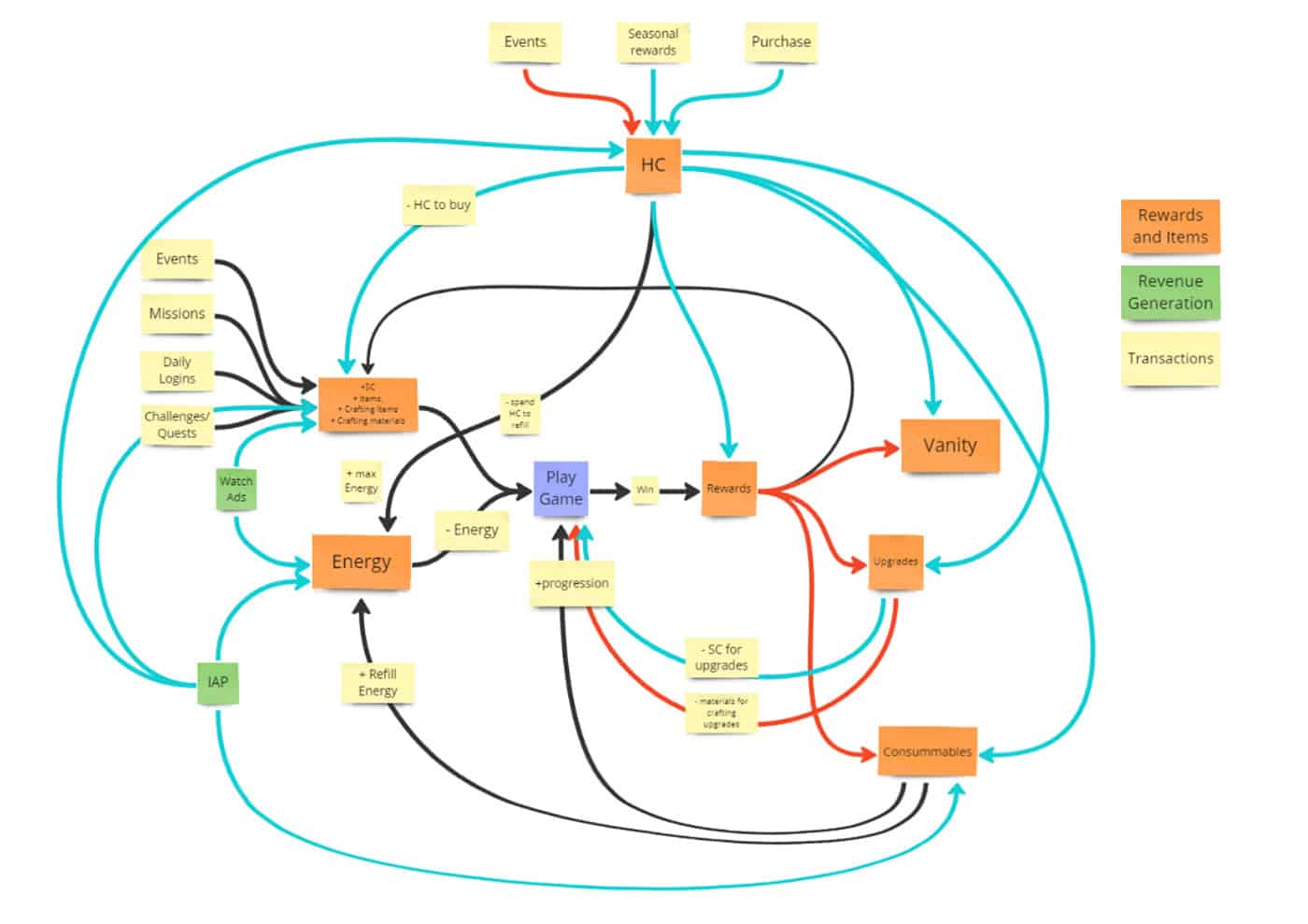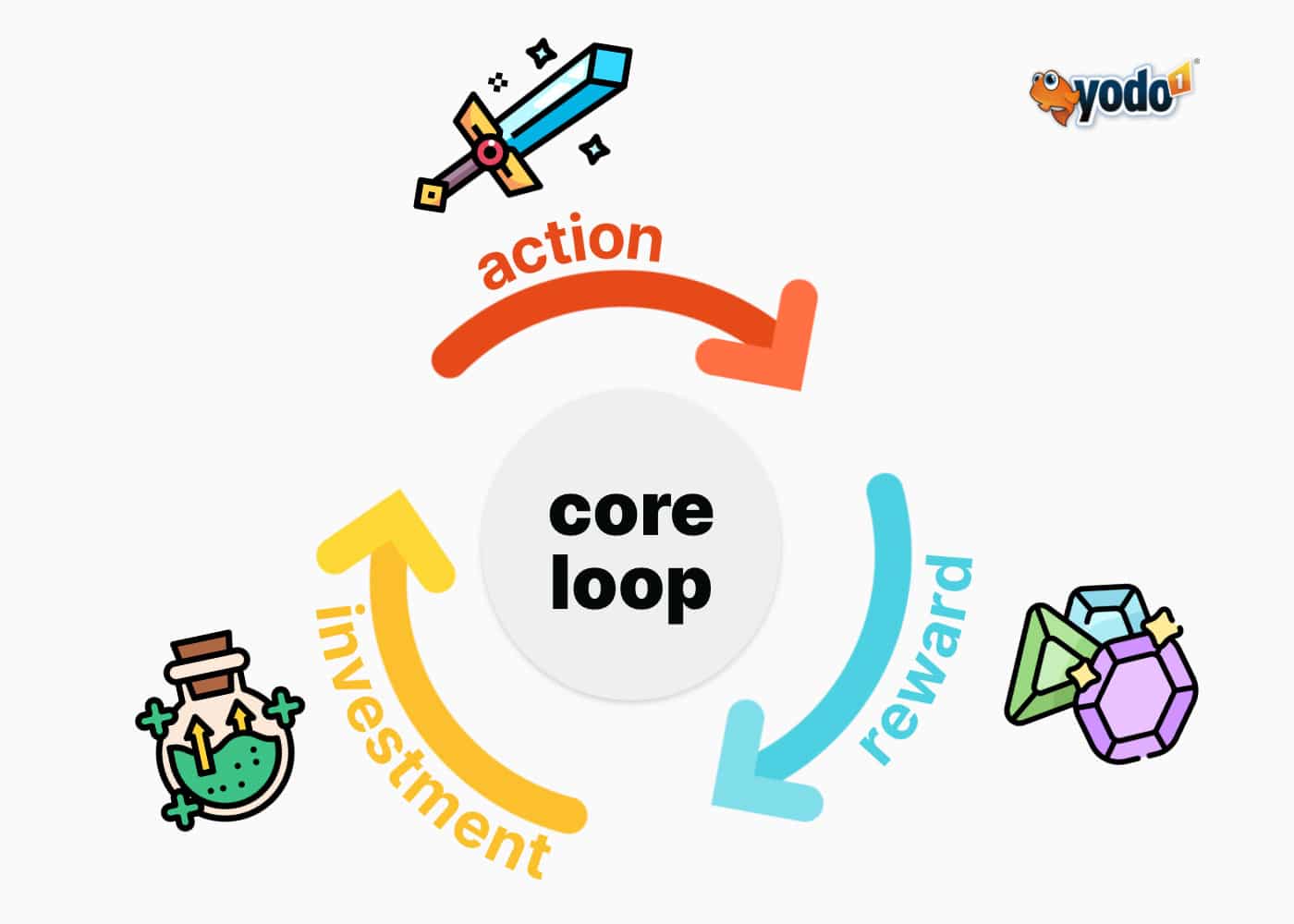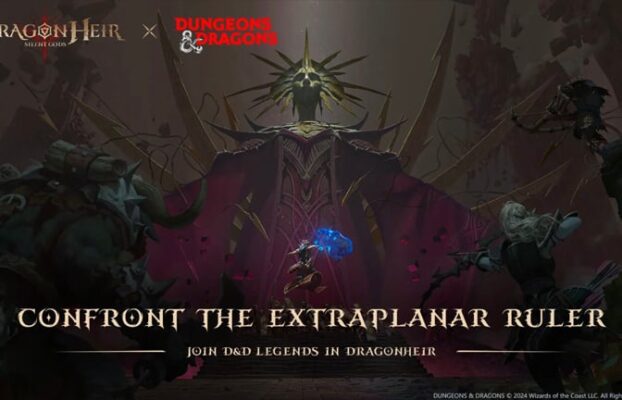June 12, 2024
Expert Tips for Simplifying the Core Loop in Game Design

Expert Tips for Simplifying the Core Loop in Game Design
Andrew Woodruff, Head of Product and Publishing | Yodo1 Games
Core loops in games are broken; there, I said it.
Most visualizations of gameplay shunt us through a tangled web of progression, actions, rewards, arbitrary features, and currencies that, let's be honest here, nobody fully understands. This complex spider web can hurt retention, limit revenue, and make life hard for everyone involved.
My math teacher in high school had the answer - KISS (‘Keep It Simple Stupid’). It’s time to hit reset and build a simple loop that aligns the whole team, from designer to artist to programmer, and keeps players deeply engaged, without all the tangled mess.
A Simple Core Loop
What is the core loop? It’s the set of actions the player takes to get rewards that can be reinvested. This forms the beating heart of your game! Think of it as an engagement engine, which, when properly built, is the driving force behind revenue and long-term retention. The most important takeaway is that a well-built core loop should be simple. Simplicity means no confusion and no misdirected motivations. Simplicity means a self-sustaining cycle, actually shaped like a loop, driven by your players’ desire to progress.
Simplicity is as critical on the development side as it is for players. Often, the “core loop”, when diagrammed out accurately, is a confusing tangle. How is a dev team, artist, investor, or stakeholder supposed to unify behind something that looks like a bramble bush? On the other hand, an oversimplified diagram can misrepresent the real picture, leading to further confusion.

I propose we cut the Gordian Knot. Simplify the game’s core loop, full stop. As a result, everything (including the diagram) gets simpler. Devs understand what they are working on so players know what they are working toward.
Here’s the simplified core loop:
- Action: The player takes a meaningful action – completing a quest, crafting an item, defeating a boss, etc.
- Reward: They receive a reward that acknowledges their action. This could be tangible, like loot or experience points, or intangible, such as the satisfaction of overcoming a tough challenge or unlocking the next chapter of an amazing story.
- Investment: The reward is reinvested back into the game, giving the player new tools, abilities, or resources, enhancing their future gameplay.
This cycle creates a constant dynamic of motivation and gratification. Each reward instills the drive to reinvest, grow stronger, and perpetually work toward the next big thing. Build in a game economy that offers options for progressing more quickly, and you have all the tools in place for a world-class game.

Fine-tuning the Core Loop Over Time
Simplicity is key, but the real magic happens when we balance the game properly. How? By perfect timing when players act, earn, and invest.
Early in the game, keep it simple. Let’s say that means one action gives one reward, which buys one upgrade. This teaches players the ropes without throwing them in the deep end too soon.
Early wins are easy and engaging, but as the game progresses, rewards should get tougher to earn. This may mean ten actions for one reward, effectively making each action worth just 0.1 of a reward. This scale-up, if tuned properly, keeps players engaged as their skills improve and makes those hard-earned rewards feel even more special.
Tuning the core loop should not be a guessing game. Use real gameplay data to strike the right balance. A/B test different action-reward ratios at various progression points, focusing on key metrics like player retention, LTV, IAP conversion rates, session length, and DAU.
Armed with such feedback loops, make ongoing adjustments, such as:
- Rebalancing overpowered or underbaked character abilities
- Tweaking resource economies and loot tables
- Re-tuning the difficulty curves of specific encounters
Tuning the core loop in real-time with actual player data ensures that players feel their time and efforts are well-invested, optimizing for engagement, retention, and ultimately, the game's financial success.
The Final Word
A well-designed core loop is simple yet dynamic, keeping players engaged and invested. When diagrammed, it should also be easy to avoid the tangled spider web and focus on creating a clear, motivating, and rewarding experience for your players. The result? Better retention, higher revenue, and happier players.
To recap what we’ve covered, here are some actionable takeaways to help you get the ball rolling:
- Build a clear, balanced core loop (action-reward-investment) that feels satisfying.
- Integrate monetization thoughtfully, making it feel like a natural part of the game.
- Monitor key metrics and gather player feedback to guide your decisions.
- Iterate constantly, tweaking difficulty, loot drops, and mechanics for optimal balance.
Get all these right, and you’ve got something truly special on your hands. But the journey will have just begun. Then you need to think about how to reach new players and scale your game globally. Check out Yodo1’s Game Growth Accelerator Program to learn how.
Author Bio:
Andrew Woodruff
Head of Product and Publishing at Yodo1 Games
With over 16 years of global experience across top-grossing titles, Andrew has brought his expertise to bear across free-to-play gaming models, game design and production, marketing, operations, and business development. His resume spans Gameloft, IGG, R2Games, Mechanist Games, and NetDragon.
Now, at Yodo1, Andrew brings his full-scope approach to hit games like Rodeo Stampede, Transformers: Earth Wars, and Ski Safari.
Latest Blog Posts

IP LicensingWing Fighter x TRANSFORMERS – A Battle for the Ages! January 6, 2025

IP LicensingDragonheir: Silent Gods x Dungeons & Dragons – Enter the Third Phase of Epic Collaboration! December 20, 2024

IP LicensingTRANSFORMERS bots and Puzzles & Survival Game Unite to Combat a Massive Invasion! December 16, 2024

IP LicensingYodo1 Gathers China’s Top Mobile Gaming Leaders to Explore Global Brand Partnerships in 2025 December 9, 2024

IP LicensingViking Legends Unite in Viking Rise A Once-in-a-Lifetime Crossover! December 3, 2024

Game GrowthGrumpyface Studios announces Castle Doombad: Free to Slay is available now on iOS and Android devices November 27, 2024
Table of Content
Lorem ipsum dolor sit amet, consectetur adipiscing elit. Suspendisse varius enim in eros elementum tristique. Duis cursus, mi quis viverra ornare, eros dolor interdum nulla, ut commodo diam libero vitae erat. Aenean faucibus nibh et justo cursus id rutrum lorem imperdiet. Nunc ut sem vitae risus tristique posuere.
Heading

Heading 1
Heading 2
Heading 3
Heading 4
Heading 5
Heading 6
Lorem ipsum dolor sit amet, consectetur adipiscing elit, sed do eiusmod tempor incididunt ut labore et dolore magna aliqua. Ut enim ad minim veniam, quis nostrud exercitation ullamco laboris nisi ut aliquip ex ea commodo consequat. Duis aute irure dolor in reprehenderit in voluptate velit esse cillum dolore eu fugiat nulla pariatur.
Block quote
Ordered list
- Item 1
- Item 2
- Item 3
Unordered list
- Item A
- Item B
- Item C
Bold text
Emphasis
Superscript
Subscript
Table of Content

